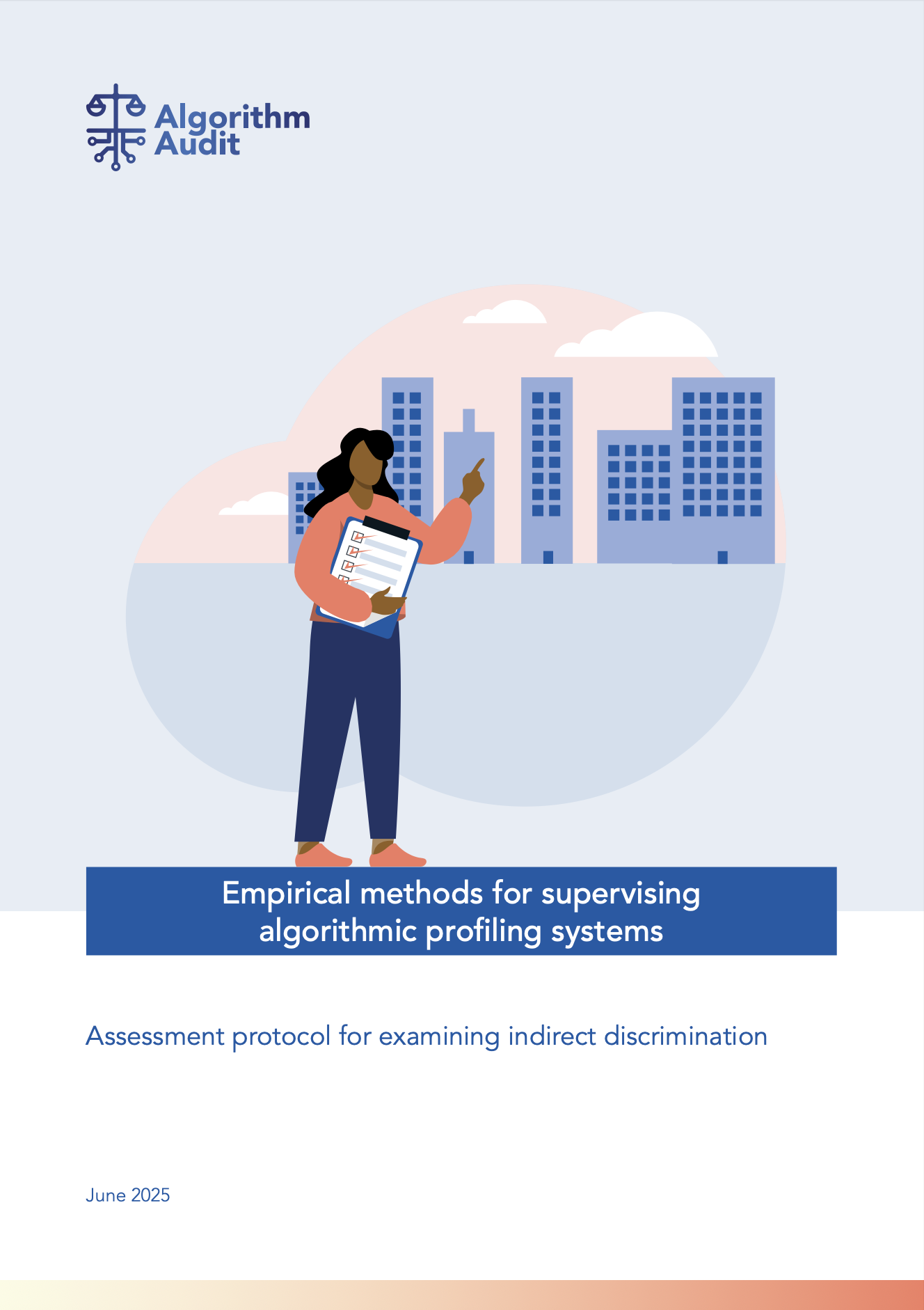This article will be published in a special edition of the Journal for Supervision in Dutch Praktische handvatten voor empirisch toezicht op profileringsalgoritmes.
Abstract
When regulating algorithmic profiling systems, not only legal but also statistical information plays a key role. Using a Dutch public sector risk profiling algorithm as an example, we demonstrate that current frameworks, guidelines and soft law fall short in providing sufficient guidance for the interpretation of open norms within European non-discrimination law. We show that established methods from empirical science can help clarifying these norms. Building on the case-based example, we propose an assessment protocol designed to assist supervisory authorities in formulating targeted questions to examine indirect discrimination through algorithmic profiling systems used in the public and private sector. This approach builds upon existing legal frameworks, enabling supervisory authorities to effectively monitor algorithm-driven decision-making processes, even with limited resources.

